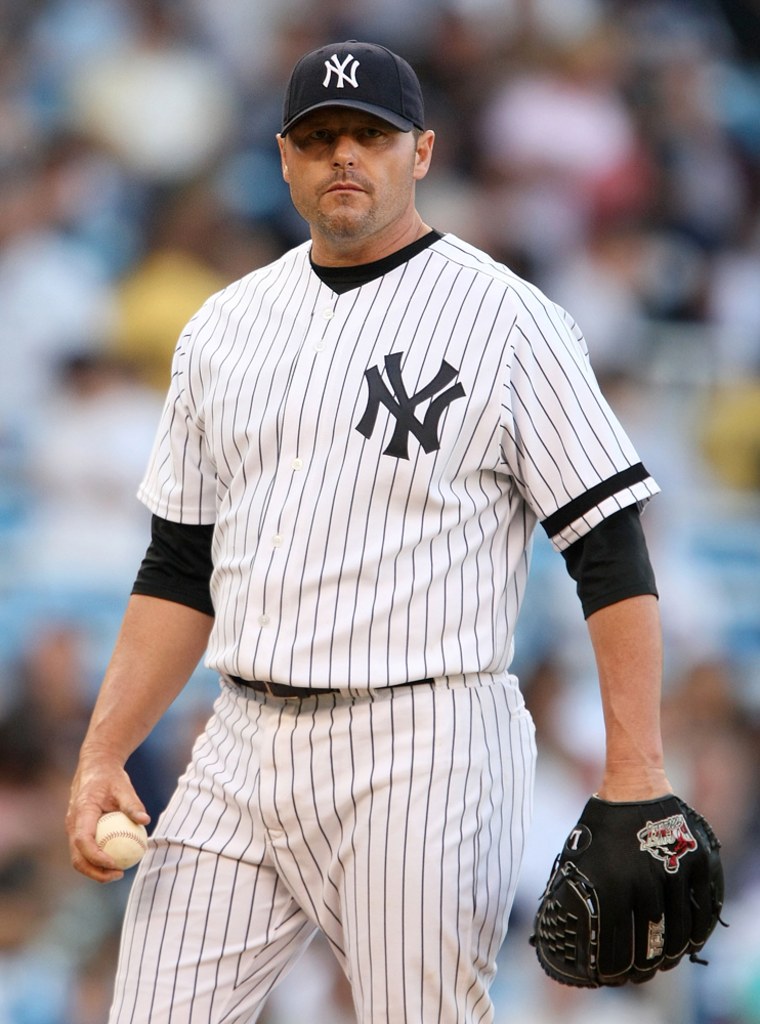Without a doubt, George Mitchell's report accusing more than 80 baseball players of using steroids and other illegal substances served a massive blow to the game – the endorsement game.
The report, released Dec. 13, cites a handful of players who makes hundreds of thousands of dollars – and sometimes millions – in endorsement income. These players will bear the biggest wound and of those stars, ranging from Jason Giambi to Barry Bonds, none will suffer more than Roger Clemens.
First, the inclusion of Clemens – he of seven Cy Young awards, 354 wins and two World Series rings – was by far the investigation's biggest bombshell. Not only were pitchers absent during the years of speculation about who used steroids, but Clemens was well known for his unrelenting work habits. That seemed to be why he was able to throw hard at 44, an age when pitchers either are retired or are floating knuckleballs.
Now, the whispers can begin as sportswriters, fans and others dissect his career. Was it a little strange that he seemed to be washed up and then, after he signed as a free agent with Toronto, posted a 21-7 record with a 2.05 ERA in 1997? During the 2000 World Series, was it more than just competitive intensity that caused him to hurl a shattered bat at Mike Piazza?
For his part, Clemens, through his agent, quickly and emphatically denied the report's allegations. Ten days after the report was released, Clemens issued a denial via video. His lawyer has into the findings.
”I want to state clearly and without qualification: I did not take steroids, [HGH] or any other banned substances at any time in my baseball career or, in fact, my entire life,” Clemens said.
Companies and others have already reacted to the allegations about Clemens in the Mitchell Report. An ESPN spot featuring Clemens was quickly yanked. A speaking engagement on vigorous workouts booked by the Texas High School Baseball Coaches Association is in jeopardy; a message now scrolls at the top of its that says, "In light of the Roger Clemens speaking situation, we feel more information is needed before a decision is reached." On the positive side, Houston Astros owner Drayton McLane said that he would honor the pitcher's 10-year personal service contract with the team once he retired.
With more than $3 million in endorsement income in 2006 and plenty more in speaking fees, Clemens has been one of baseball's more popular pitchmen. That is guaranteed to end. Just look at baseball's all-time home run king, Barry Bonds, who couldn’t land an endorsement when he was breaking the most hallowed record in U.S. sports because of a national belief that he used steroids.
Though no companies with ties to Clemens (such as Coca-Cola and AutoNation) have announced his contract has been terminated, as happened with Los Angeles Lakers guard Kobe Bryant after rape allegations surfaced in 2003, don't expect any firms to sign him from here on out. His marketability has collapsed. In a Chicago Tribune story, AT&T, which created a popular mobile phone commercial with Clemens that recently stopped airing, wouldn't comment on any future ads – a no comment that spoke volumes.
One might ask: Why would Clemens care, since he might retire (again) anyway? Wouldn’t his endorsement career fade away when he departs the mound? Not at all. Of the 10 endorsers in pro sports with the highest Q scores – which measure how well-known and how well-liked they are – seven (including Michael Jordan) are retired. Companies feel comfortable with the tried and true and with those who won’t make news in, say, strip clubs after games. Given his success and the fact he is one of baseball’s most recognizable faces, it is easy to assume Clemens would have made tens of millions in endorsements during a lengthy retirement. Not only will he lose that, the value of Clemens’ memorabilia – from trading cards to old uniforms to autographs – is sure to decline.
What about Major League Baseball itself in the wake of Mitchell’s report? Don't expect any repercussions for the country's newest $6 billion industry. Truth is, fans had heard rumors about steroids for years. They had watched sluggers' biceps and heads grow out of proportion to their body. Despite all of this, they've been packing stadiums in record numbers and blithely buying merchandise. Bud Selig wouldn't have ordered the report if he thought baseball's sponsors would flee. If anything, he hoped to put a tawdry era behind the game and put the focus on 2008 and beyond.
But for Clemens, the accusations of being injected with steroids in the buttocks will never cease to dog him. Those alleged shots have ended his career as an endorsement big shot.
Last, but not least …
As the BCS games approach, online ticket prices are dropping sharply.
During a two-week period before Christmas, the average price of a Rose Bowl ticket at StubHub fell from $457 to $394. Fiesta Bowl and Orange Bowl tickets also declined about 15 percent apiece at the site as sellers worried about getting any money for seats. A big difference between bowl games and the regular season: Ticket buyers also need to make travel arrangements. Airline ticket prices jump as the game gets closer, and booking a room gets harder.
Bucking the trend is the championship game between Ohio State and LSU in New Orleans. The average ticket price leapt to $1,544 from close to $1,400 for the Jan. 7 battle. It’s always a sellers’ market for a championship game near the French Quarter.
